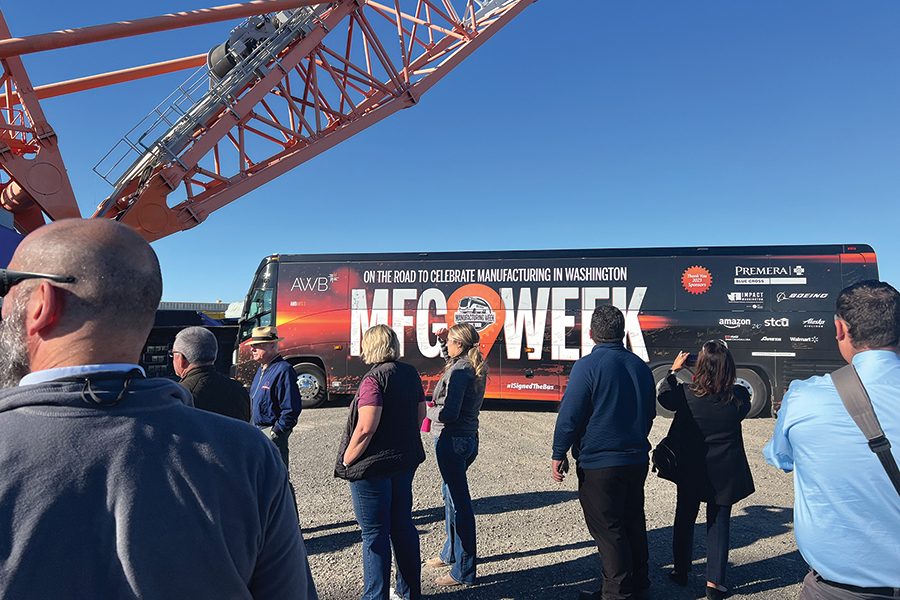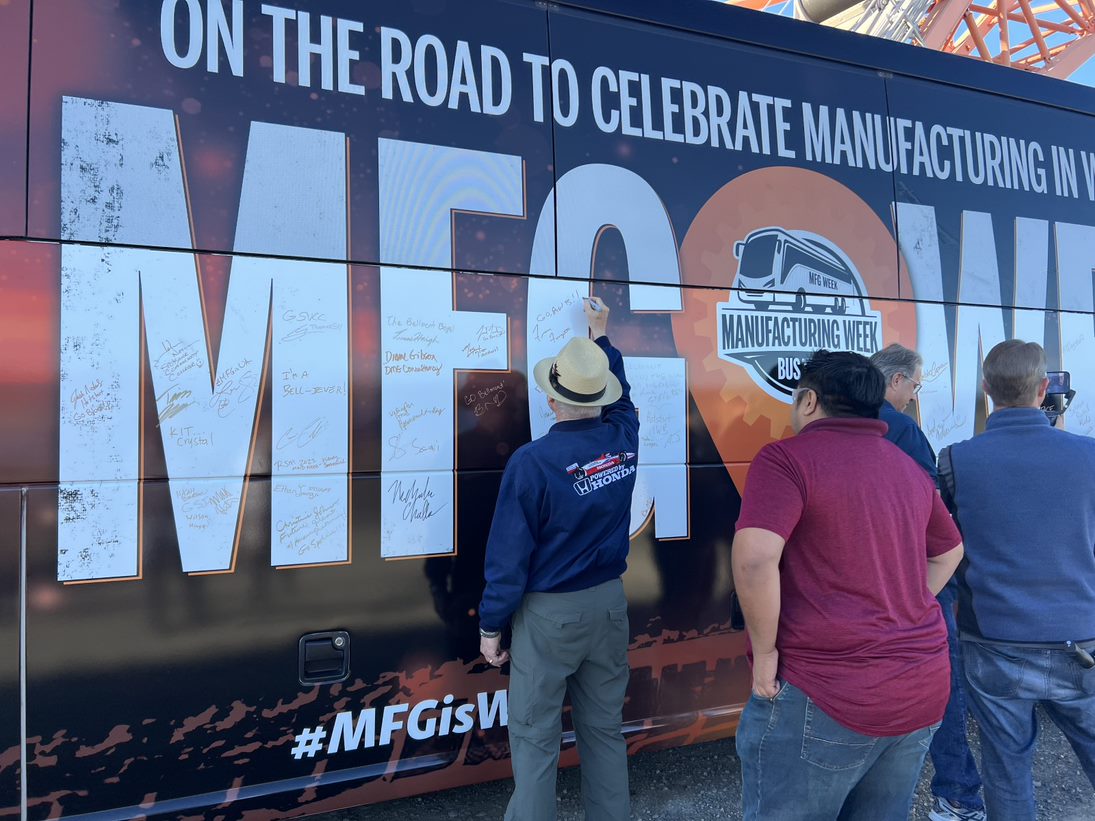
Home » Bus tour shines spotlight on importance of state’s manufacturing sector
Bus tour shines spotlight on importance of state’s manufacturing sector

October 11, 2023
Employees from Lampson International and Tyson Foods grabbed Sharpies to add their signatures to the tall letters on the side of the bus crisscrossing the state to bring attention to the role the sector plays in the state’s economy.
The Manufacturing Week tour, now in its seventh year, is an awareness campaign organized by the Association of Washington Business, which serves as the state’s manufacturing association.
“It reminds us that in Benton-Franklin counties, there are 265 manufacturing companies that employ just under 8,000 women and men who wake up every morning and go make things like these cranes or French fries or so many other things in the Tri-Cities that the Tri-Cities are known for. Statewide, 270,000 men and women wake up every morning and make a great product,” said Kris Johnson, AWB’s president, at Lampson International’s Pasco yard on Oct. 6.
In addition to the Tri-Cities, the six-day tour made stops in Olympia, Sumner, Ellensburg, Spokane, Yakima, Bellingham, Hamilton, Anacortes, Everett, Mukilteo, Bothell, Seattle, Kent and Auburn on its journey to visit more than 20 manufacturers.
Manufacturing firms employed 268,000 people in Washington in December 2021, and employees earned an average annual salary of $97,600.
“We need a skilled, trained and educated workforce to come in and be the next generation of smart, talented people to lead these companies and build these companies,” Johnson said.
The sector contributes to about $63.3 billion in annual economic output in the state.

“We’re the most trade-driven state in the country. So that means we make great products and then we ship them somewhere – somewhere across the state, somewhere across the country, for that matter somewhere across the world. Great careers exist in this industry, manufacturing really matters and has a great multiplier effect. And if we’re going to preserve and maintain this, we’ve got to be really smart in our tax and regulatory policy environment. Those things matter greatly when companies think about making major capital investments, like manufacturers do every day here,” Johnson said.
The day before the Tri-Cities visit, Johnson delivered AWB’s first-ever State of Manufacturing address from the manufacturing floor of Hotstart Thermal Management in Spokane.
Washington’s agricultural sector was singled out as a major contributor, with the state leading the nation in such crops as apples, hops and blueberries. Johnson also mentioned innovations in automated, robotic and drone technologies that are increasing yields on the state’s 35,000+ farms.
Johnson also discussed Washington’s low-cost power as a significant competitive advantage that could make the state an innovator and leader in the growing sector of renewable aviation energy.
A recent milestone that will significantly impact the industry is the state’s goal of doubling existing manufacturing jobs by 2031, an objective that, if met, would increase annual manufacturing output to $126 billion, employ more than half a million people, and double the number of women- and minority-owned manufacturing firms in Washington.
“It’s not going to be easy to achieve this goal,” Johnson said during his address in Spokane. “But good goals are rarely easy to achieve.
Local News Manufacturing
KEYWORDS october 2023




